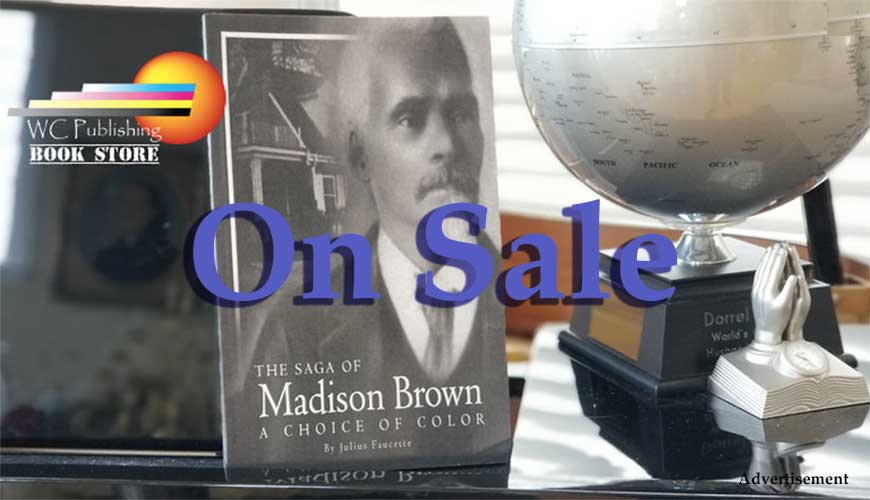
ADVERTISEMENT
You are being redirected to www.choicelegalaction.com
WASHINGTON (AP) — The Supreme Court on Thursday struck down affirmative action in college admissions, declaring race cannot be a factor and forcing institutions of higher education to look for new ways to achieve diverse student bodies.
The court’s conservative majority effectively overturned cases reaching back 45 years in invalidating admissions plans at Harvard and the University of North Carolina, the nation’s oldest private and public colleges, respectively.
The decision, like last year’s momentous abortion ruling that overturned Roe v. Wade, marked the realization of a long-sought conservative legal goal, this time finding that race-conscious admissions plans violate the Constitution and a law that applies to colleges that receive federal funding, as almost all do.

Those schools will be forced to reshape their admissions practices, especially top schools that are more likely to consider the race of applicants.
Chief Justice John Roberts said that for too long universities have “concluded, wrongly, that the touchstone of an individual’s identity is not challenges bested, skills built, or lessons learned but the color of their skin. Our constitutional history does not tolerate that choice.”
From the White House, President Joe Biden said he “strongly, strongly” disagreed with the court’s ruling and urged colleges to seek other routes to diversity rather than let the ruling “be the last word.”
Besides the conservative-liberal split, the fight over affirmative action showed the deep gulf between the three justices of color, each of whom wrote separately and vividly about race in America and where the decision might lead.
Justice Clarence Thomas — the nation’s second Black justice, who had long called for an end to affirmative action — wrote that the decision “sees the universities’ admissions policies for what they are: rudderless, race-based preferences designed to ensure a particular racial mix in their entering classes.”Justice Sonia Sotomayor, the court’s first Latina, wrote in dissent that the decision “rolls back decades of precedent and momentous progress.”
Both Thomas and Sotomayor, the two justices who have acknowledged affirmative action played a role in their admissions to college and law school, took the unusual step of reading summaries of their opinions aloud in the courtroom.
In a separate dissent, Justice Ketanji Brown Jackson — the court’s first Black female justice — called the decision “truly a tragedy for us all.
”Jackson, who sat out the Harvard case because she had been a member of an advisory governing board, wrote, “With let-them-eat-cake obliviousness, today, the majority pulls the ripcord and announces ‘colorblindness for all’ by legal fiat. But deeming race irrelevant in law does not make it so in life.
”The vote was 6-3 in the North Carolina case and 6-2 in the Harvard case. Justice Elena Kagan was the other dissenter.
The Universities of Louisiana Reginald F. Lewis Scholars enhances the collegiate experience of black male students.
Find out how you can support this program.
Learn more
How the Court's Decision May Impact Families?
Author of “The
Way Up: Climbing the Corporate Mountain as a Professional of Color” Errol Pierre says ending affirmative action could upend or reverse progress made by people
of color, especially in the workplace.
“There will be a huge ripple
effect due to this change,” Pierre told the AC Phoenix in an exclusive
interview.

Pierre
points to California’s ban on affirmative action in 1996 with Proposition 209.
It banned race and gender as factors in state university admissions, hiring,
and contracting.
“Based
on a study by Zachary Bleemer, underrepresented minority freshmen went to lower-quality
colleges. Degree attainment declined for these populations. Thousands of
qualified underrepresented minorities were deterred from even applying to
better schools which led to less underrepresented minorities earning STEM
degrees. Lastly, it impacts the average salary earned by underrepresented
minorities. They earned less on average after prop 209,”
Peirre explained.
Pierre
goes on to say schools wishing to amass a diverse study body will have to get
creative to recruit an ethnically diverse student body by using “zip codes to
lock in on neighborhoods with high concentrations of specific populations.”
“The
silent and insidious short-term impact will be the millions of students of
color that will be deterred from applying to their dream schools or stretch
schools because of this change,” Pierre said.
Among
his long-term concerns are the impacts ending affirmative action within higher
education will have in other parts of society.
“Companies
focused on diversity will see lower levels of diverse candidates from top
schools. They will be in a position to decide how to handle the prospects of
that happening,” Pierre said.
Conversely,
businesses without an added focus on creating a diverse workforce will have an
added excuse to bypass potentially qualified applicants of color.
“Businesses
without a focus on diversity will have justification as to why they cannot find
students of color to hire. When affirmative action first happened as an
executive order under Lyndon Johnson, many industries mirrored the EO and took
it on,” Pierre said.
Despite
the uphill challenge facing underrepresented populations with the affirmative
action ruling, Pierre stresses don’t be deterred.
“Keep
applying to the schools you want to attend. Don’t be discouraged by the new
ruling,” Pierre said. He also encourages students and their families to
research schools committed to diversity and stay politically active to monitor
legislation impacting diversity efforts in Congress.

In an effort to track his family history the author has skillfully layered the foundation of his roots. Julius Faucette searches for a workable meaning to his life through his ancestor's choices of color. Faucette takes the reader back to the 1700's through research and intimate conversations with one of the oldest members in the family. Eugene Pinnix, who lived to be 104, speaks to the readers through Julius Faucette. 
Fluidly, calmly, insightfully, Faucette guides his readers straight to the intersection of the most serious questions of identity, class and race. The Saga of Madison Brown "A Choice of Color" is a story of race, inheritance and color choices. Not often does one hear of someone of German ancestry passing for black. Through his research, Faucette reveals how individuals in the Madison Brown family were able to make color choices, which ultimately resulted in life changes.
Faucette cleverly shifts between information obtained through general research and his on-going interviews with Eugene Pinnix. By combining both, he is able to educate and entertain his readers. The author deciphers a historic unknown by matching it with known facts obtained through his cousin Eugene. And the contrast between those born in slavery and those born to freedmen is powerful. This historical pictorial will draw readers in.
As the Madison Brown history unfolds, each generation passes down to the next that thirst to make color choices. The struggles of each play out in this candid historical review. In this irresistible story, Faucette resists the urge to paint with a broad brush that will stereotype the races. He utilizes the information obtained from not only his dear cousin, but also documents from local courthouses, state records, etc., to present a complete family picture.
This first edition will take the reader back several generations and the result is that
most will yearn to know their family origins.
We are very excited to share our archive issue newsstand section. Click on the desired thumbnail to view the entire issue. Archived issues are organized on the newsstand by year. At the bottom of the newsstand click on the year to view additional issues.

We Get Results!
We have over 33 years of getting results for our advertisers. A business with no sign is a sign of no business. The AC Phoenix will put a sign of your business before an audience of over 250,000 readers and online viewers! There is nothing more important to us than your success!

ADVERTISEMENT
